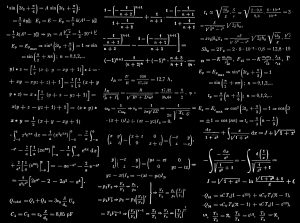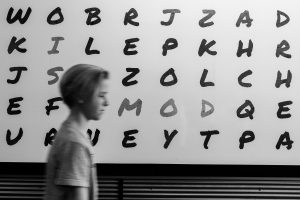Which is Better: Vedic Maths or Abacus?

Introduction
Are you a parent feeling overwhelmed with how to improve your child’s mathematical abilities? Do you find yourself pondering over the age-old question: Which is better, Abacus or Vedic Maths? As a parent, you want the best for your child, especially when it comes to their education. Mathematics plays a crucial role in their academic journey, and it’s important to choose the right approach to help them excel.
In this article, we will delve into the differences between Abacus and Vedic Maths to help you make an informed decision. Both methods have their unique advantages, and understanding these differences will enable you to choose the one that best suits your child’s needs. So let’s explore the world of Abacus and Vedic Maths and unravel which method is more beneficial for your child’s mathematical journey.
Difference Between Abacus and Vedic Maths
Abacus: A Foundation for Mathematical Proficiency
Let’s start by understanding what an Abacus is. The Abacus is a physical tool that has been used for centuries to perform basic arithmetic operations like addition, subtraction, multiplication, and division. It consists of rods or wires with beads that are moved back and forth to represent numbers.
The Strengths of Abacus Learning:
Visual and Tactile Learning: One of the key strengths of the Abacus is its ability to provide a visual and tactile method of learning math. Young children, especially those in the age group of 6 to 12, benefit greatly from this hands-on approach.
Foundational Arithmetic Skills: Abacus learning focuses on building strong foundational arithmetic skills. Children learn to visualize numbers, manipulate beads, and understand the concepts of place value, addition, subtraction, multiplication, and division.
Concentration and Memory Enhancement: Using an Abacus requires concentration and memory as children perform calculations by moving beads. This practice enhances their focus and memory retention abilities.
Fun and Engaging: The hands-on nature of Abacus learning makes math fun and engaging for children, fostering a positive attitude towards the subject.
However, it’s important to note that the scope of the Abacus is limited to basic arithmetic and does not extend to advanced mathematical concepts like algebra or calculus.
Vedic Maths: Mental Calculation Mastery
Now let’s dive into Vedic Maths. Vedic Maths is a mental calculation system based on ancient Indian mathematical principles. It simplifies complex mathematical problems into manageable steps using 16 sutras (formulas) and 13 sub-sutras. Vedic Maths covers a wide range of topics including arithmetic, algebra, geometry, and even calculus.
The Strengths of Vedic Maths:
Mental Calculation: Vedic Maths focuses on enhancing mental calculation abilities. It enables students to solve complex calculations mentally without relying on paper or calculators.
Speed and Accuracy: One of the key advantages of Vedic Maths is its ability to improve speed and accuracy in mathematical calculations. This is particularly beneficial for older students preparing for competitive exams or anyone looking to improve their mental math skills.
Logical Reasoning and Cognitive Abilities: Vedic Maths techniques are designed to enhance logical reasoning and cognitive abilities. By understanding the underlying principles, students develop a deeper understanding of mathematical concepts.
Portable: Vedic Maths does not require any physical tools, making it highly portable. Students can practice mental calculations anywhere, even without access to an Abacus.
Choosing the Right Method: Age and Goals Matter
Now that we’ve explored the strengths of both Abacus and Vedic Maths, how do you decide which method is better? The answer lies in considering your child’s age and goals.
For younger children between the ages of 6 to 12, Abacus learning is generally more suitable. The visual and tactile nature of the Abacus helps them build foundational arithmetic skills in an interactive way. It also enhances their focus, concentration, and memory through the physical manipulation of beads.
On the other hand, if your child is older and preparing for competitive exams or aiming to improve mental calculation skills, Vedic Maths is the better choice. Its broader scope and ability to handle complex calculations mentally make it ideal for those looking to enhance speed and accuracy in math.
Key Features Comparison
|
Feature |
Vedic Maths |
Abacus |
|---|---|---|
|
Scope |
Covers a wide range of topics, including arithmetic, algebra, geometry, and calculus. |
Limited to basic mathematical operations like addition, subtraction, multiplication, and division. |
|
Learning Style |
Focuses on mental calculations using 16 sutras and 13 sub-sutras, improving logical reasoning and cognitive skills. |
Relies on visual and kinesthetic learning through bead manipulation, enhancing concentration and memory. |
|
Age Suitability |
Suitable for all age groups, especially older students preparing for competitive exams. |
More effective for younger children due to its hands-on approach. |
|
Speed & Accuracy |
Enables faster and more accurate mental calculations compared to traditional methods. |
Encourages faster calculations but is limited to simpler problems. |
|
Tool Dependency |
Requires no physical tools; relies entirely on mental techniques. |
Requires a physical abacus tool for calculations. |
|
Complexity |
Can handle complex problems like algebra and calculus. |
Not suitable for advanced mathematical concepts or large calculations. |
Conclusion
In conclusion, both Abacus and Vedic Maths offer unique advantages when it comes to math education. Abacus lays a strong foundation for young learners by providing a visual and tactile learning experience focused on basic arithmetic skills. Vedic Maths, on the other hand, enhances mental calculation abilities, logical reasoning, and cognitive skills for older students.
At SIP Abacus India, we understand the importance of choosing the right method to unlock your child’s mathematical potential. Our world-class skill development programs use the Abacus tool and visualization techniques to teach children mental math skills from ages 6 to 12. We offer structured modules with small class sizes and fun learning methodologies designed to engage children.
Studies have shown that children who complete the SIP Abacus program perform significantly better in math and reading at school. They often excel beyond their peers within a short period of time. Our program not only develops strong mental math abilities but also improves focus, concentration, and overall intelligence, giving your child a competitive edge.
So whether you choose Abacus or Vedic Maths, rest assured that both methods have the potential to enhance your child’s mathematical journey. Consider your child’s age, goals, and learning preferences, and choose the method that best suits their needs. Embrace the world of numbers and watch your child excel in mathematics!



